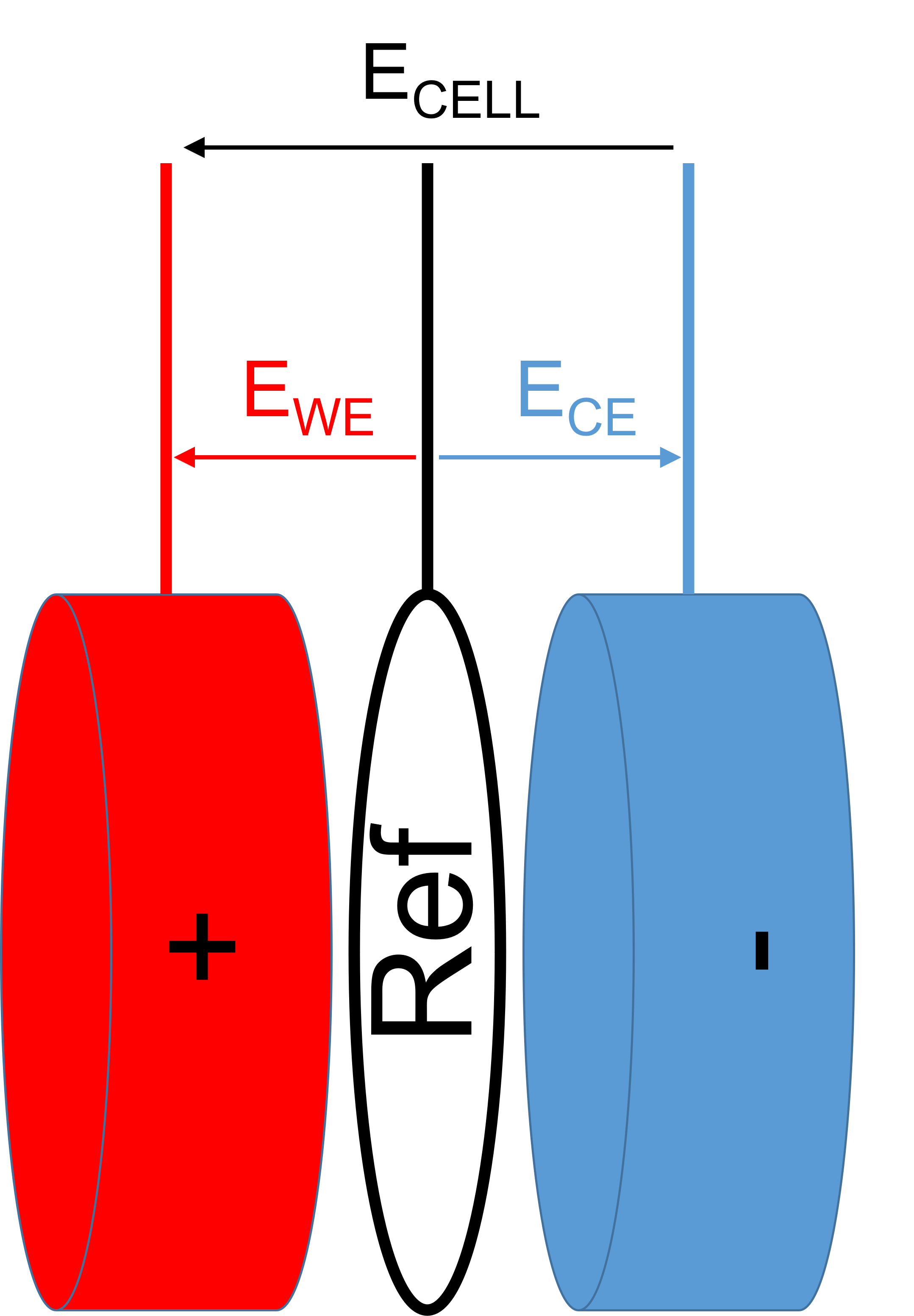Not Negative. Not Positive. Negative AND Positive. Full Cell Control for Premium & Essential Instruments
Latest updated: October 8, 2024Understanding positive & negative electrodes gives battery researchers a holistic view of battery performance
In order to optimize battery design, it is important to discriminate between the contribution of positive and negative battery electrodes. The ability to fully understand the behaviour of each electrode gives users a holistic view of battery performance making it more relevant to their research. Thanks to advanced BioLogic potentiostat / galvanostats, researchers are no longer forced to investigate each half-cell separately. BioLogic users can exploit the EC-Lab® full cell control feature to monitor the half-cell voltages $E_\mathrm{WE}$ (or $E^+$) and $E_\mathrm{CE}$ (or $E^-$) while the full cell voltage $E_\mathrm{WE-CE}$ (or $E_\mathrm{CELL}$) is controlled (cf. Fig. 1). This is managed using a reference electrode, so the battery must allow a 3-electrode set-up. The positive voltage values can be obtained directly. This control mode allows the user to perform both Galvano and Potentio sequences without inverting the cell connection.

Figure 1: Configuration for a battery with a reference electrode.
Full Cell control mode is available for both Essential and Premium ranges of BioLogic potentiostat / galvanostats. It can be found in the “Safety/Adv. Settings tab” (see Fig. 2 below).

Figure 2: Potential control mode window.
For more details about full cell control mode including practical examples of use, please see Application Note #58.





